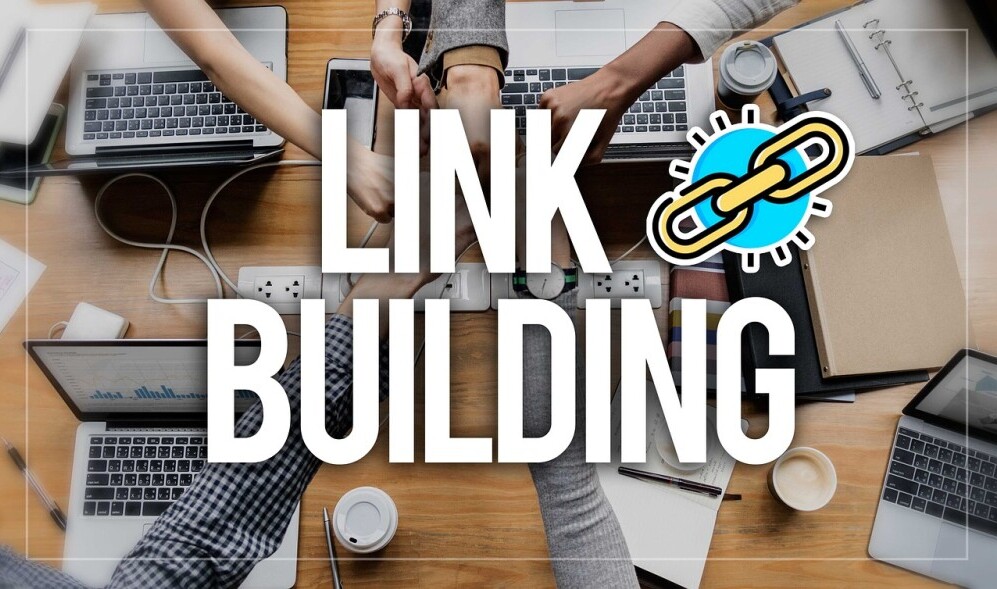
Link building is all about getting other websites to link back to yours. These are called backlinks. Imagine it as a little shout-out from one site to another, helping Internet users and search engines decide which sites are worth visiting.
Now, what’s the difference between link building and backlinks? Well, link building is the process of acquiring these backlinks. Meanwhile, backlinks are the result—those actual links on other sites pointing to yours.
But why is link building so important for your website? It’s not just about traffic. It’s also about elevating your site’s authority and trustworthiness in the digital world. Search engines see backlinks as votes of confidence. So, the more high-quality sites link to yours, the more credible your site appears.
Ever wondered how link building works in real life? Think of how influencers tag brands on social media, recommending their followers to check out cool stuff. That’s link building at its core—making connections, building relationships, and sharing the digital love.
Starting Your Link Building Journey
Getting started with link building might feel a bit daunting, but it’s all about taking small, manageable steps that add up over time. First up, you need to understand the basics and have the right mindset. It’s about building relationships and offering value, not just hunting for links.
There are plenty of tools and resources that can help kick-start your journey. You don’t need to shell out a fortune; some free tools like Google’s Search Console can get you off to a good start. And don’t overlook communities and forums that are brimming with tips and tricks.
For true beginners, focus on creating valuable content that people naturally want to link to. This means crafting articles, blogs, or resources that others find really useful. Start small by targeting friendlier websites or even local businesses.
On the hunt for knowledge? Do some research on a very popular affiliate marketing program called Wealthy Affiliate. Wealthy Affiliate is a solid option that you should consider for your training. It’s one of those platforms that offers hands-on training, helpful tools, guidance, and a community of like-minded folks who are just as eager to crack the link-building code.
Think of link building as a journey rather than a race. It’s about connection, strategy, and slowly building your web of links—kind of like weaving a safety net for your site on the vast map of the internet.

Starting with link building might seem like a massive leap, but breaking it into digestible parts makes it manageable and even enjoyable.
The first step in crafting a killer strategy is focusing on the quality of what you produce. Content is king, right? Create content that people find irresistible—be it engaging articles, insightful videos, or useful tools.
Building stellar relationships with other sites is another tactic to have in your toolkit. Think of this as networking for your website. Drop an email to bloggers, businesses, or influencers within your niche. Introduce yourself and your content. You’d be surprised at how open many people are to collaborating!
Guest blogging is another great way to gain those valuable backlinks. Find sites that accept guest posts and that align with your interests or industry. Offer them high-quality content they’d be glad to share. It’s a win-win situation. You gain a link, and they get fresh content for their readers.
Strive to stay clear of common pitfalls like buying links or spamming comment sections—these tactics can actually hurt your site’s credibility. Keep it organic and genuine, and watch your site grow over time. Link building, after all, isn’t a shortcut; it’s more like sowing seeds and nurturing your little digi-garden.
Planning & Executing a Successful Link Building Campaign
Creating a link-building campaign is like plotting out a road trip. Grab a map—metaphorically speaking—and outline your goals clearly. What do you want to achieve? Is it boosting your site’s authority, increasing traffic, or both? Getting these down helps in steering your campaign in the right direction.
Crafting a detailed strategy is the backbone of any successful campaign. Identify which strategies resonate with your goals, whether it’s guest blogging, resource link building, or reaching out for digital PR. A mix of tactics gives your campaign a well-rounded approach.
Tracking progress is crucial to understanding how well your campaign is performing. This isn’t about obsessively checking numbers but about looking at tangible outcomes. Are you seeing more referral traffic? Is your site’s authority on the rise? Tools like Ahrefs and Moz can provide valuable insights.
Campaign management might occasionally feel like juggling fiery swords, but with the correct resources, you can keep everything going in the right direction. Find platforms that streamline processes—from outreach to tracking. Some tools even offer automation for repetitive tasks, freeing up time for those creative strategic moves.
The key is to keep refining your strategies based on what’s working or what’s not. Campaigns aren’t set in stone; they’re ever-evolving projects that reflect changes in your approach and learnings along the way.
The Future of Link Building: Looking Ahead to 2025
With technology advancing at lightning speed, link-building strategies are bound to evolve. In 2025, expect more focus on building genuine connections with other websites rather than the old-school tactics that were purely numerical.
Search engines constantly tweak their algorithms, and staying ahead means adapting to these changes. What worked this year might not cut it next year. Smarter algorithms are getting better at identifying the quality and relevance of links, so the focus will be more on meaningful content collaborations.
Some say that AI and automation tools will dominate the scene. These can streamline your efforts, but remember, personal touch and authentic relationships still hold the highest value. It’s all about blending tech with human interaction.
Another expected trend is the increasing importance of niche communities and social proof. Building a reputation within focused groups and channels could be your secret weapon in gaining credibility and those sought-after links.
Look out for innovative case studies that showcase new, creative approaches to link building. These can serve as inspiration and offer practical strategies that align with future trends. Keeping an open mind and a watchful eye on industry shifts will be crucial in refining your link-building approach.
Is link building still relevant today?
In an ever-shifting digital landscape, the question of link building’s relevance often pops up. Despite changes and trends, link building remains a crucial part of achieving a strong online presence. Search engines and users alike continue to view credible backlinks as endorsements of reliability and expertise.
A healthy backlink profile can bolster your site’s reputation, turning the internet’s vastness into a network of authenticated pathways pointing back to you. This credibility can spell the difference between your site or another grabbing that coveted top spot in search engine results.
Of course, the conversation around link building today also includes its evolving nature. Modern strategies focus on trustworthiness, ensuring links are from well-respected, relevant sources rather than mere quantity. As a result, building and maintaining this trust is more important than ever.
Understanding the broader scope of link building also involves recognizing the impact on a brand’s reputation. Engaging in ethical link-building practices is key, as manipulative tactics can result in penalties—not something you want in your digital toolkit.
In a nutshell, link building isn’t going anywhere. Evolution, yes; replacement, no. As long as there is content to be shared and SEO to be optimized, link building will continue its role as a pillar of digital strategy. Keeping it ethical and user-focused anchors it in relevance for years to come.
“Here’s a little transparency: Our website contains affiliate links. This means if you click and make a purchase, we may receive a small commission. Don’t worry, there’s no extra cost to you. It’s a simple way you can support our mission to bring you quality content.”

